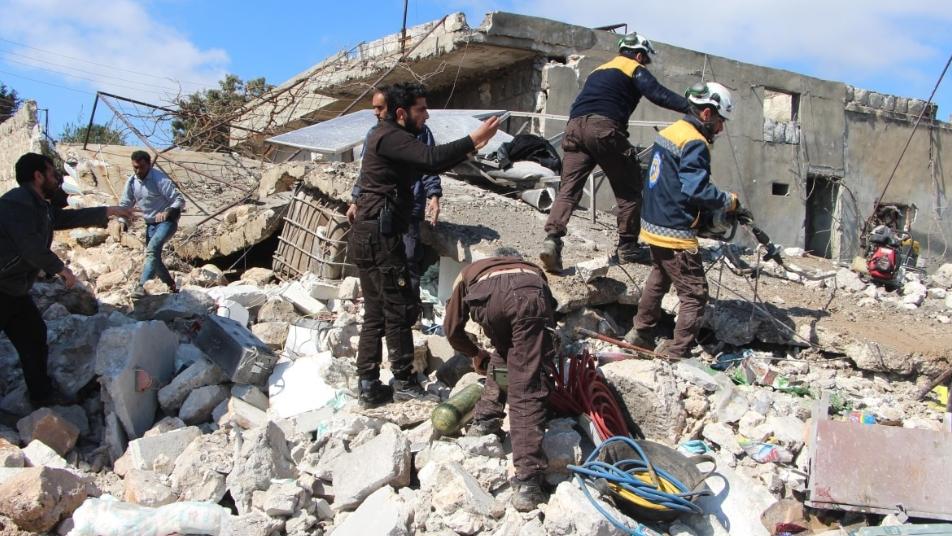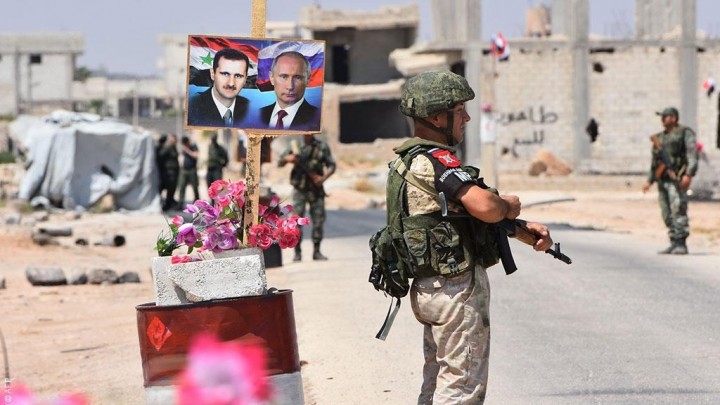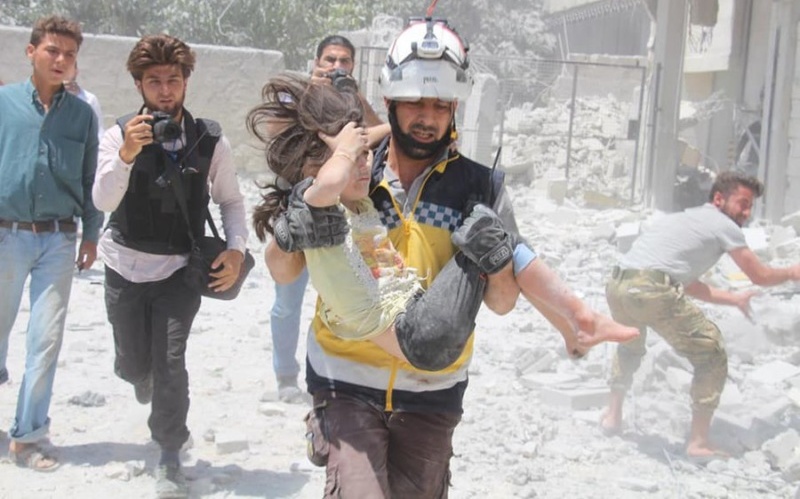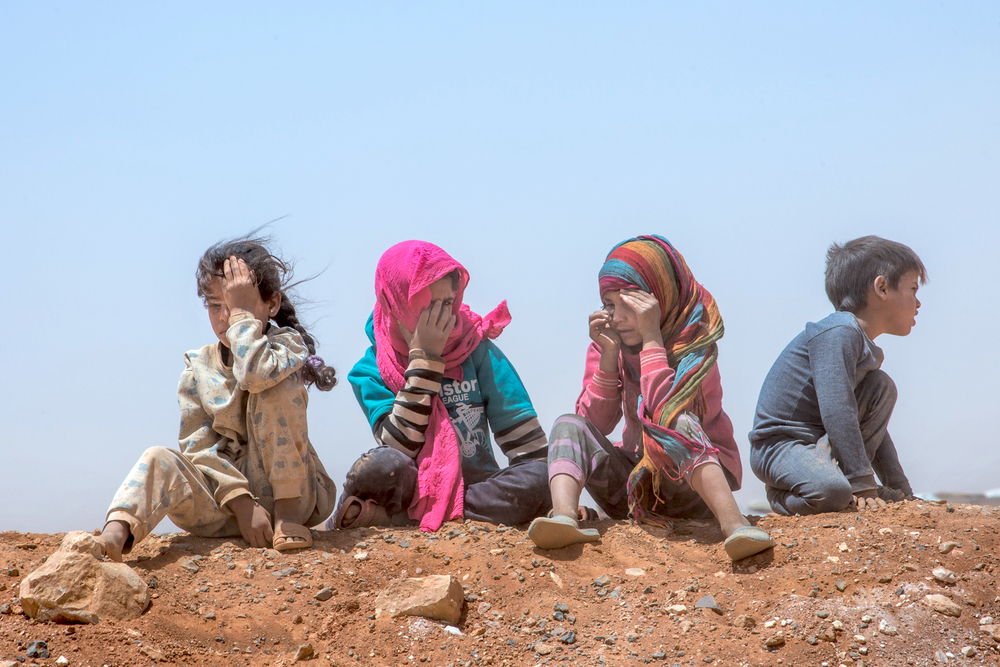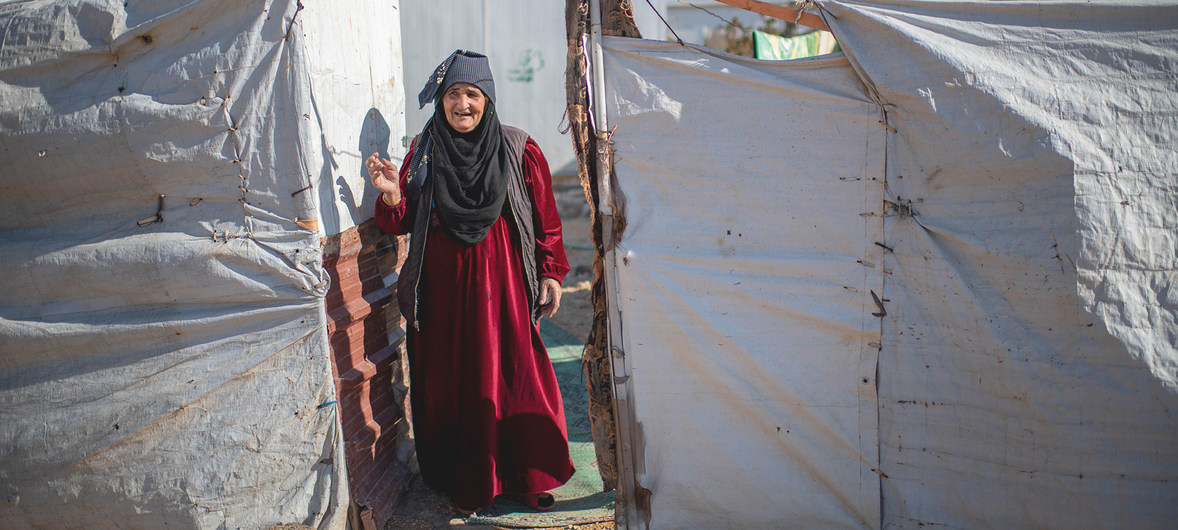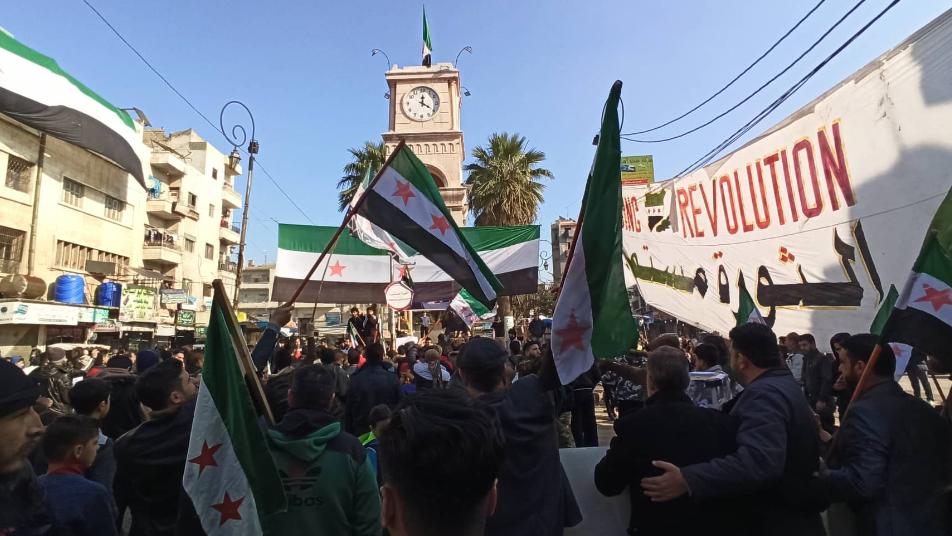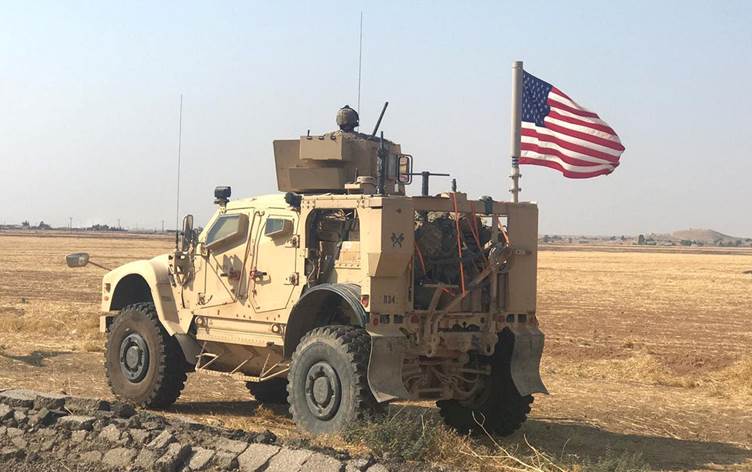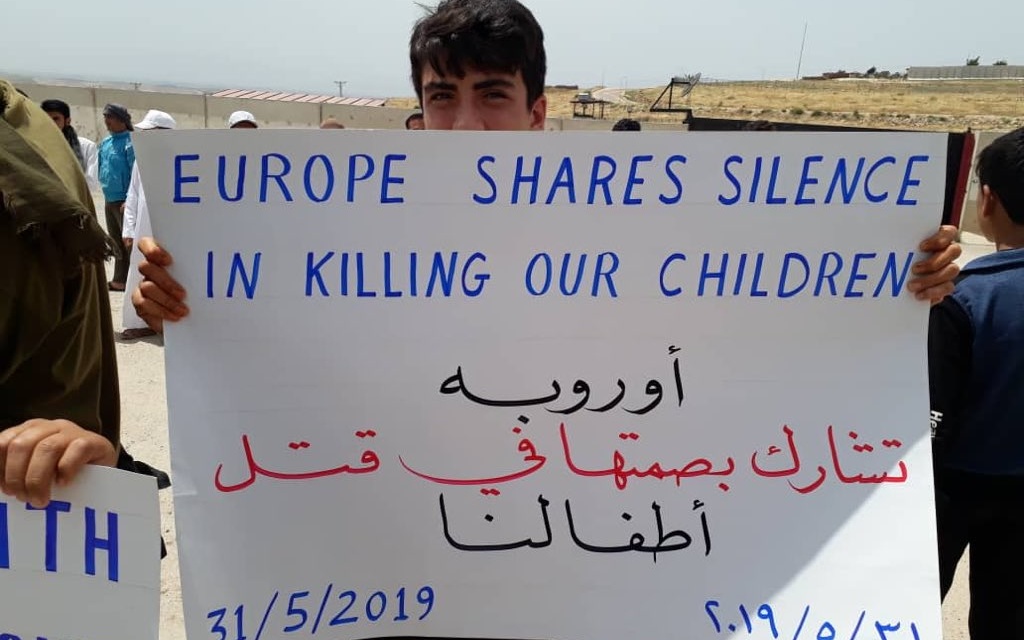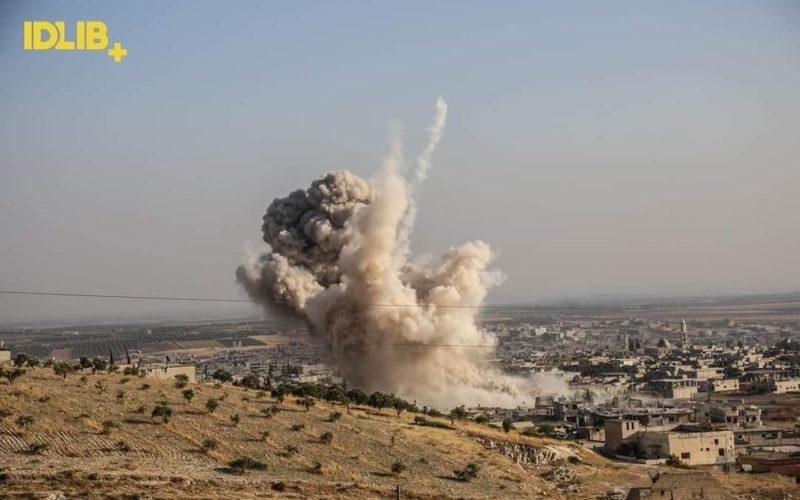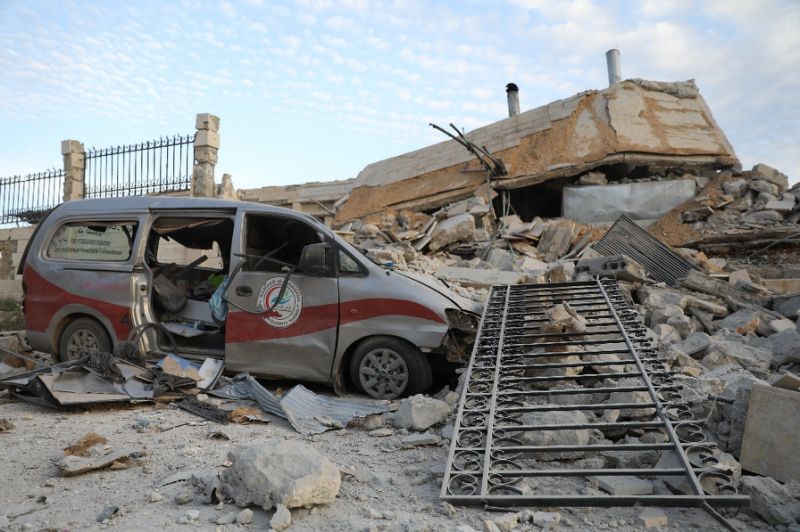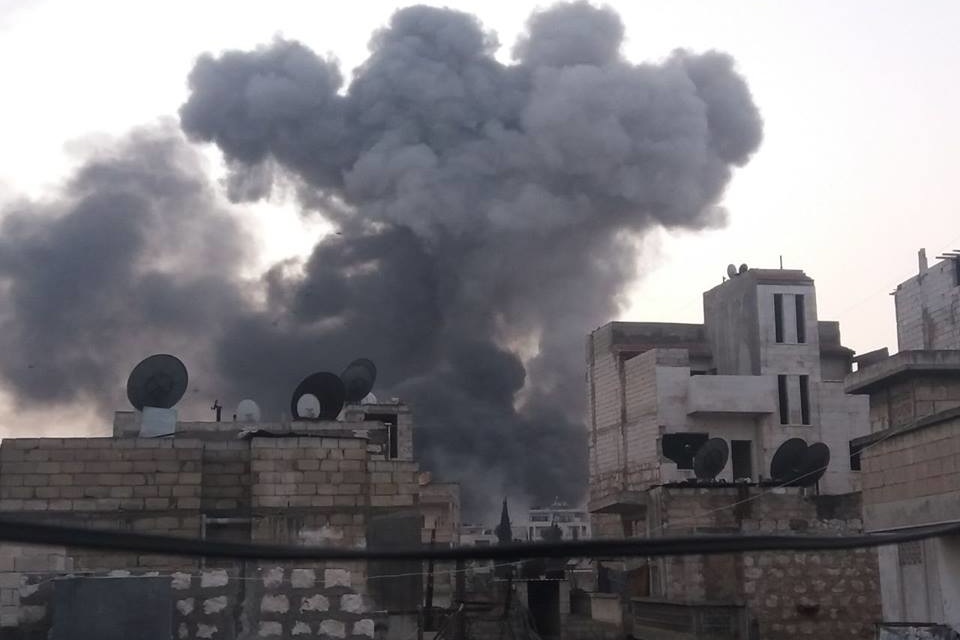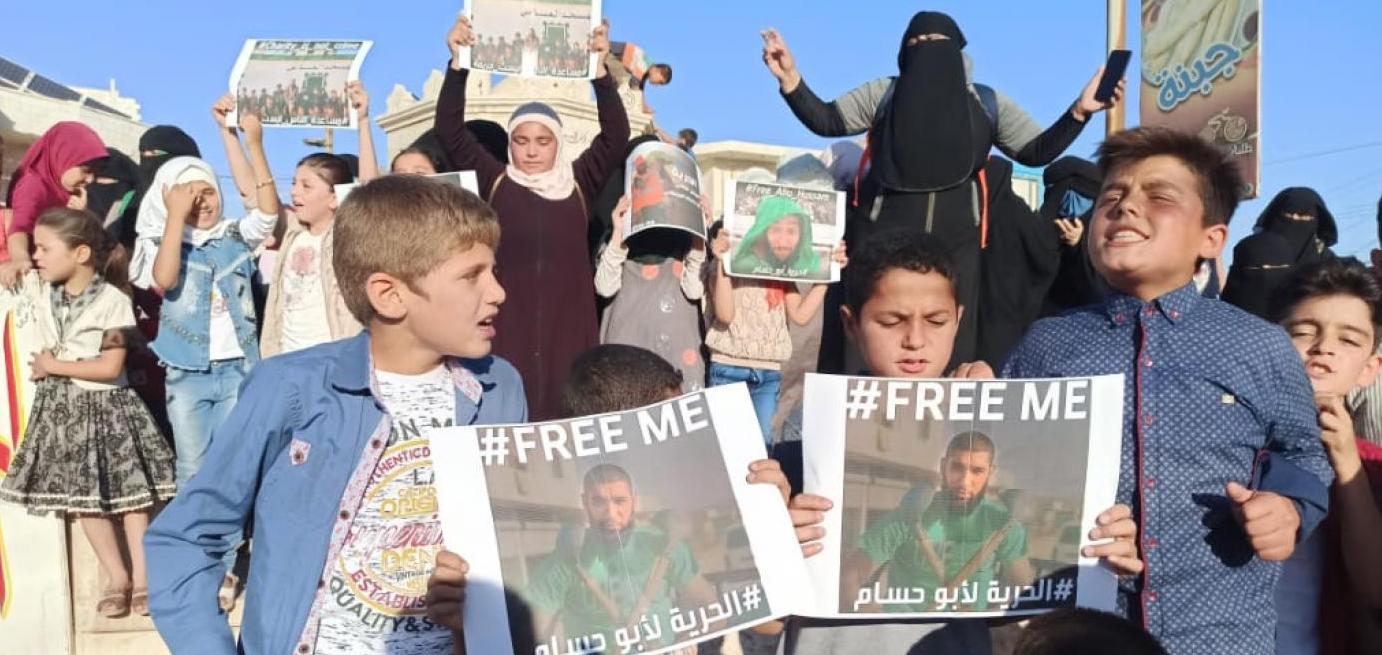
Syria: protests against ex-Nusra rule in Idlib
Protesters gathered in the town of Atmeh in Syria’s opposition-held Idlib province to demand the release of a locally based British aid worker arrested by Hay’at Tahrir al-Sham (HTS), the Islamist militia formerly known as the Nusra Front that now controls much of the province. Tauqir Sharif, a British Muslim, was working with a grassroots aid and media group called Live Updates from Syria. He was detained by HTS in a raid on his home. Footage of the protest showed many women and children among dozens chanting and holding banners calling for Sharif to be freed. The crowd finally gathered outside the closed gates of a compound guarded by masked militiamen. Demonstrators also protested the closure of education and social services by HTS, chanting “We want schools to open.” (Photo via Middle East Eye)



